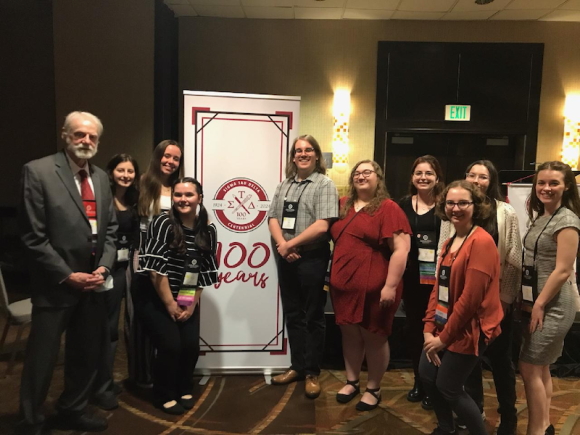
The English, Literature Concentration, Teacher of English Licensure (5-12), B.A. at 91Ő“…ę prepares future educators with deep literary knowledge and innovative teaching strategies. As English majors, our teacher candidates develop expertise in literature, writing, and critical dialogue while gaining hands-on experience in classroom instruction.
Through coursework and field experiences, students explore fresh approaches to writing and literature instruction, backwards design for lesson and unit planning, and diverse literary traditions‚ÄĒincluding post-colonial, young adult, Native American, and Asian American literature. The program also emphasizes creative writing, the role of rhetoric in writing, and public and academic writing practices to equip students with versatile instructional methods. Our graduates are trained in anti-bias and anti-racist pedagogy, preparing them to create inclusive learning environments and address inequities in education.
91Ő“…ę‚Äôs educator preparation programs are approved by the Massachusetts Department of Elementary and Secondary Education (DESE) and accredited by the Association for Advancing Quality in Educator Preparation (AAQEP). Our graduates are known for their ability to make a meaningful impact on their students' learning.











